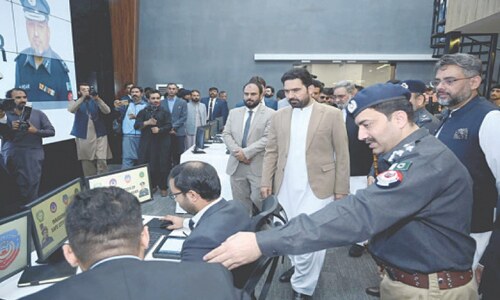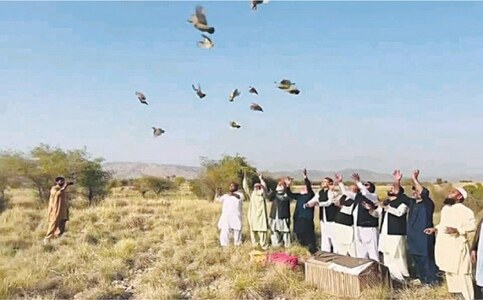PESHAWAR: The growing housing societies in Peshawar valley have been eating up agriculture land, which is considered to be the most fertile land of the country.
This was stated by environmentalist Nadeem Bukhari at a training workshop on ‘sustainable land management’ held at University of Agriculture here on Monday. The workshop was organised by the climate change centre of the university.
He said that the ultimate impact of the agricultural production on environment was negative because of the excessive use of insecticide, pesticide and fertilisers.
The workshop was also addressed by Dr Mohammad Zulfiqar, the director of climate change centre, and Dr Mohammad Jamal Khan, the chairman of soil and environment department.
Mr Bukhari said that land provided an environment for agricultural production. He said that land was also an essential condition for improved environmental management, including source/sink functions for greenhouse gasses, recycling of nutrients, amelioration and filtering of pollutants, and transmission and purification of water as part of the hydrologic cycle.
Speakers at workshop ask govt to frame policies for land management
The sustainable land management was necessary to harmonise the complimentary goals of providing environmental, economic and social opportunities for the benefit of present and future generations while maintaining and enhancing the quality of the land resource.
Mr Bukhari defined sustainable land management as use of land to meet changing human needs while ensuring long term socioeconomic and ecological functions of the land. He said that government needed to frame policies for land management that would also stop environmental degradation.
He said that it was necessary for the sustainable land management to reduce the level of production risk and enhance soil capacity to buffer against degradation processes and protect the potential of natural resources and prevent degradation of soil and water quality.
Mr Bukhari said that sustainability could be achieved only through collective efforts of those immediately responsible for managing resources. “It requires a policy environment that empowers farmers and other local decision makers to reap benefits for good land use decisions, but also to be held responsible for inappropriate land uses,” he added.
He said that there was an urgent need to resolve the global challenge to produce more food to feed rapidly rising global population while at the same time preserving biological production potential, resilience and environmental maintenance systems of the land.
Mr Bukhari said that sustainable land management, if properly designed and implemented, would make agriculture a part of the environmental solution rather than remaining an environmental problem.
Dr Zulfiqar said on the occasion that global climate models showed that climatic conditions were changing significantly at regional and global scales. “At the end of this century, climate will be substantially warmer than that of the past century,” he added.
He said that environmental changes had also impact on high intensity rainfall, increased rates of soil erosion and shifting timing of seasonal events.
Published in Dawn, December 05th, 2017
































